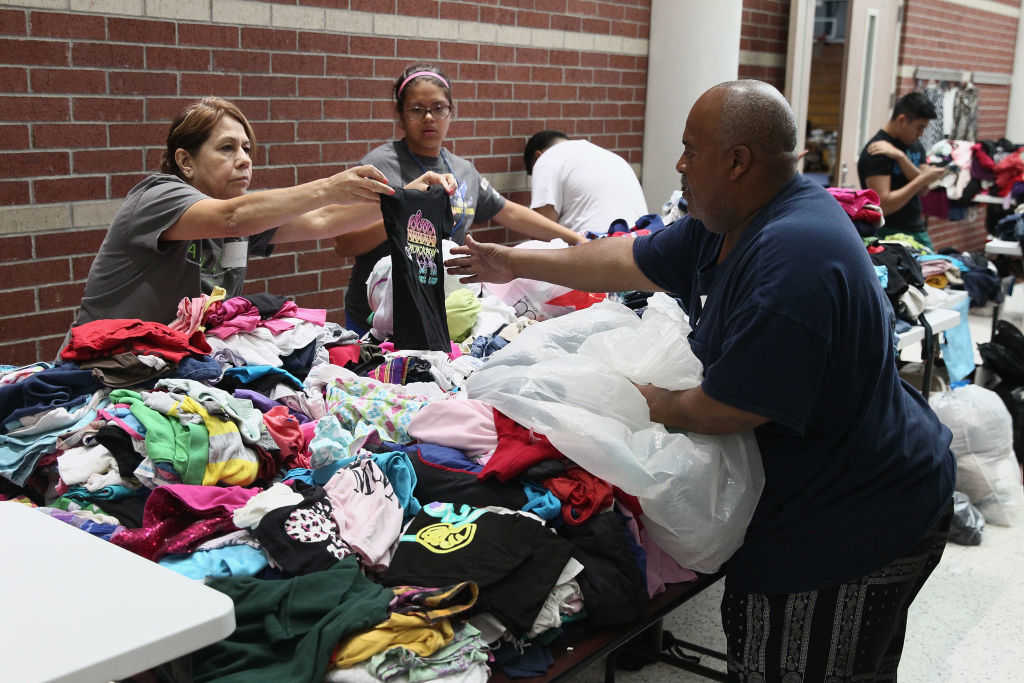Right now the entire world is watching the flooding and destruction caused by Hurricane Harvey in southeast Texas and Louisiana. As the days and weeks begin to pass, however, we know the media will shift its attention to other stories, while the people so devastated by the storm continue to need supplies, support, and prayers for months and years to come.
“This will be a devastating disaster, probably the worst disaster the state’s seen,” William “Brock” Long, administrator of the Federal Emergency Management Agency, told the Washington Post on Sunday. “The recovery to this event is going to last many years to be able to help Texas and the people impacted by this event achieve a new normal.”
FEMA expects more than 450,000 people will seek disaster relief assistance in the aftermath of Harvey, with some 30 to 50 counties affected by the storm in Texas alone.
Over the weekend, Houston officials took the unprecedented step of asking volunteers with small watercraft to assist with the search and rescue efforts, but as the storm has evolved, so too have the relief needs. On Monday night, the Harris County Sheriff’s Office shared that they are no longer asking for boats and high water vehicles, instead directing those interested in helping to organizations like the American Red Cross, Volunteer Houston, and Texas Gulf Coast VOAD.
So many have asked. Here's volunteer info. We need you! #harvey #hounews #HurricaneHarvey pic.twitter.com/r96nmFJAx4
— HCSOTexas (@HCSOTexas) August 29, 2017
Additionally, Houston Mayor Sylvester Turner announced on Sunday that his office has teamed with the Greater Houston Community Foundation to establish the Hurricane Harvey Relief Fund, which is now accepting monetary donations.
“We are getting calls from across the country and right here in our hometown, and the generosity of people who understand this disaster is truly amazing,” the mayor said in a statement. “Together we can make a difference to those who will need extensive help to get back on their feet once this storm is over.”
Organizations like Operation Blessing, meanwhile, have mobilized resources on the ground in an effort to get supplies like safe drinking water, clean clothing, diapers, and toiletries to some of the hardest hit areas. As USDR vice president Jody Gettys shared in a video message on the organization’s website, while the storm may be finally winding down, the real work is just beginning.
“This storm is still evolving,” she said. “This disaster is not over… They are going to also need our continued support.”
For those who are looking for non-financial ways to help, there are other ways to make an impact. As Forbes reported, the SPCA of Texas and Austin Pets Alive are two animal rescue groups currently seeking volunteers to foster cats, dogs, and other pets displaced by Hurricane Harvey. Blood donations are also always needed in the aftermath of natural disasters, especially considering many Houston-area hospitals and urgent care facilities have been forced to evacuate because of the storm. The Red Cross has a tool on its website to help donors find a drive in their area.
While there are countless charities and organizations with the infrastructure to really offer great relief to the communities impacted by Hurricane Harvey, it is important to be smart when donating as to avoid falling victim to any scams or con artists.
Finally, one of the most simplest and most important things any of us can do both now and going forward is to offer our prayers for the safety and protection of the evacuees, first responders, and all those suffering as a result of this deadly storm.


